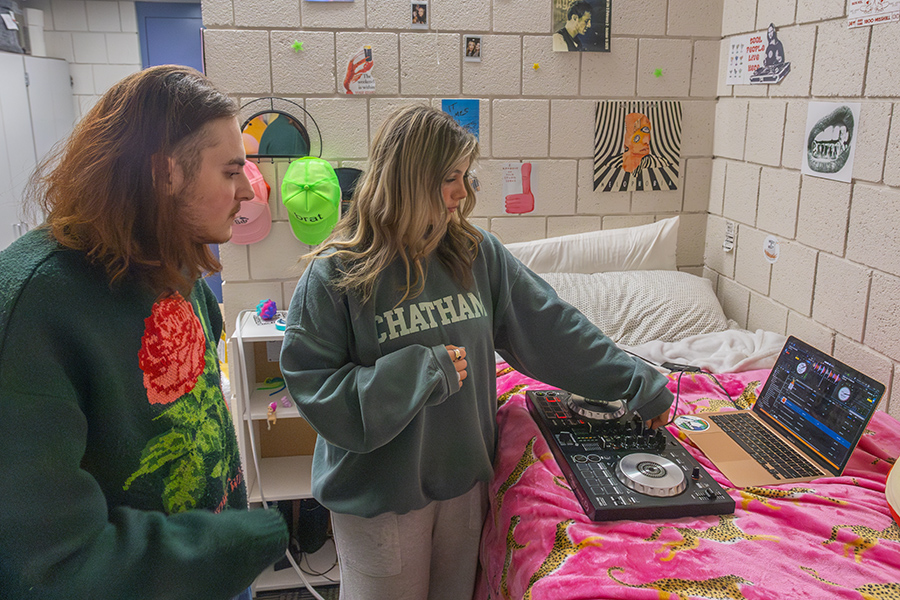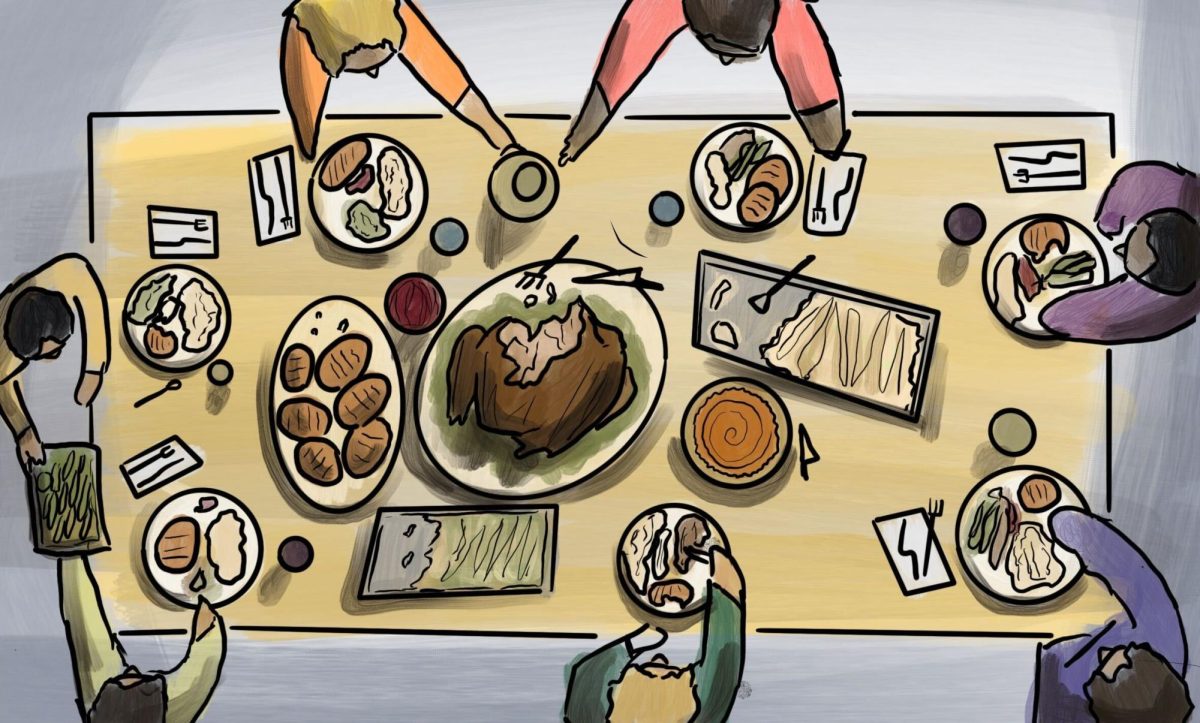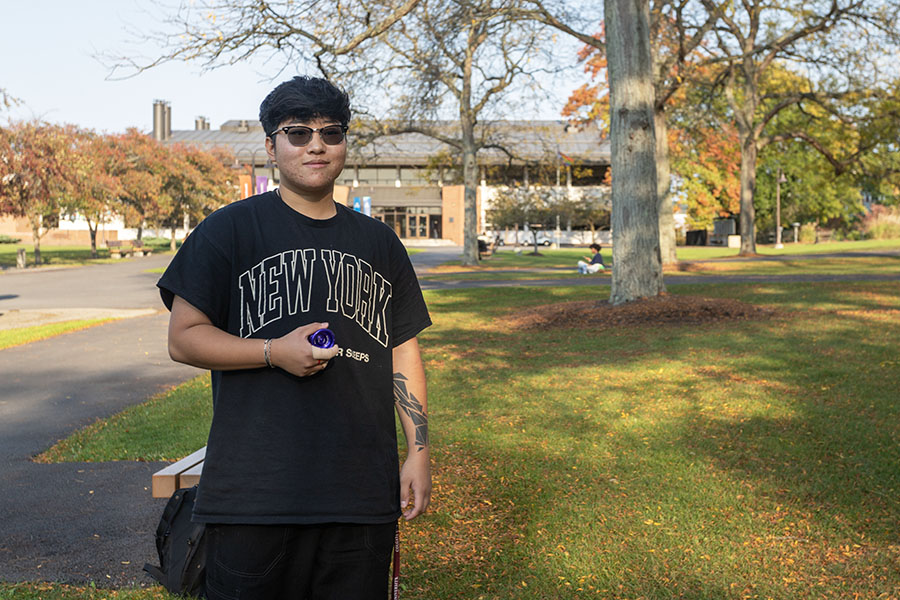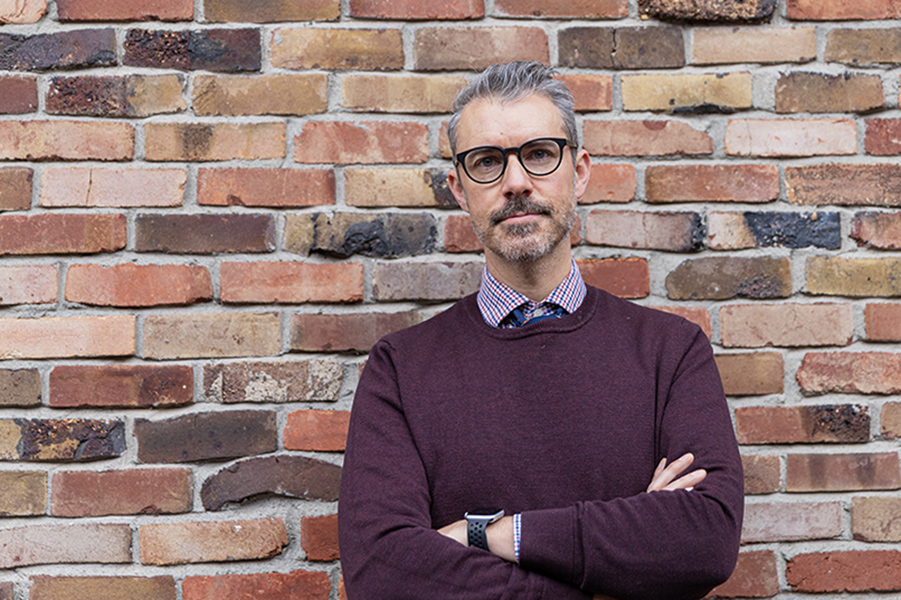John Vongas is an associate professor in the School of Business at Ithaca College. He was able to lend his expertise to help research stress-work relationships and subsequently assisted in writing the paper “The Essential Impact of Stress Appraisals on Work Engagement.” He worked alongside Raghid Al Hajj, Muhammad Jamal and Ahmed R. ElMelegy on the study that was published by Plos One. The study conducted included 487 Canadian and American full-time employees self-reporting their work engagement and stress over the course of a five-day period. Findings included people having varying relationships with their stress; some people have “positive stress mindsets” while others have “negative stress mindsets.” The study found that people with positive stress mindsets often found their stressors to be less “hindering.”
Staff writer Sarah Payne spoke with John Vongas about the paper and the process of compiling data, in addition to his findings.
This interview has been edited for length and clarity.
Sarah Payne: What was the process of compiling your research? Was there one aspect of the study you used or partook in that you found to be especially useful? If so, what?
John Vongas: This field of study of collecting data from the field I had less experience in, but I really appreciate it [the experience]. Well, first of all, I appreciate our alumni relations people who really helped in the motivation for the study and to get people interested in it, so that was very beneficial, to have a very supportive school and an institution that still keeps in touch with alumni and wishes to help out in this whole enterprise of knowledge creation. Technologically, we did this through Qualtrics. It’s a survey sort of software that was really slick. We had participants basically fill out various questionnaires over the course of five days from Monday to Friday. So the data collection process was kind of tight. But there was a lot of work to coordinate and remind people to fill out the survey. Technology helps a lot with research like this, and having a supportive organization is really critical. This had to go through Ithaca College’s Institutional Review Board, which is basically the body that allows us to go ahead and collect data according to ethical practices.
SP: What were difficulties you came across while researching the work-stress dynamic and how did you overcome them?
JV: One of the difficulties is people will get these emails about a research study and they get upset because they’re like, “Why are you bothering me with this kind of thing?” So, whenever you’re dealing with people, you’re going to have to expect that. In research, particularly in data collection, I would probably say to those who are just starting off that it’s like sales — it’s tough, you get a lot of doors slammed in your face, a lot of people get upset. “Why are you bothering me with this,” or “Why are you doing this?” But I think the way to overcome it is to be cordial, be professional and apologize. There are other issues that always come about when you’re submitting a research paper or anything that you want to get published, especially peer reviewed papers. You’ll expect criticism and sometimes the criticism is harsh, so you just have to handle that again with professionalism.
SP: In your research, what have you found to be the most common misconception surrounding this dynamic?
JV: The biggest misconception, I would say, is that people generally think of stress as bad and of course, it has been described as the “real pandemic.” But we do see that people have different attitudes about stress. And when they see stress as being potentially positive too, we see different outcomes, more of a beneficial outcomes. Overall, stress will seem less of a problem if you believe that stress is something that you can embrace, for lack of a better word. I would probably say the most important thing is two things: one, not everybody sees stress the same way and two, not all challenge stressors are going to be seen as challenging to people and not all hindrance stressors are going to be seen as hindering to people.
SP: How do you hope your research impacts the workforce or changes it?
JV: I would like for people to see stress differently. First of all, to see just from the paper, we talk about all the nefarious effects of stress. It has been called a “pandemic” and for good reason. It’s not only costly financially to organizations, it’s way more costly to people’s health. I think one of the things we want to get out is this idea that stress is, is there your relationship to it could change, if you see things differently. The impact that it may have on you will also be different. So, to some extent there is it’s kind of like a framing, of seeing stress in a different way. And if you see it as potentially helping you, then if we perceive something differently, then we know that this has an effect on our physiology or the way we behave, etc.
SP: How do you think this research could benefit students, particularly students going into business? Can it be taught in class?
JV: I think this is a big one, because a number of people, including some psychologists have suggested that this generation of students is not ready for life. The previous generations faced the same thing from the older generation. We rely on a lot of technology. It’s a little bit tough to say with this study. I think stress is always going to be a part of life. As long as we’re an ambitious species, we’re always going to create goals for ourselves, we’re going to push people sometimes beyond their limits and stress is here to stay. I don’t think it’s ever going to go away. My fear is that we’re going to see more stress in the years to come. For various reasons. One is the cost of living keeps rising, the number of young people are not able to buy a home, the promise to get people’s stress levels to go up within work and outside of work, climate change and all the ramifications, so stress is certainly going to I believe ramp up in the years to come. And I think that we need to think really, really hard about our relationship to stress and what we’re willing to tolerate. Because of social media, you’re seeing all of these wonderful things happening and young entrepreneurs. You’re seeing success more as a goal. So that puts pressure on a lot of people in addition to all these other things that people have to deal with, with affordability and cost of living and death in this time. And could that be taught in school? I think so. I think certainly, at home and in school. We’re told the students feel like they have to do a million things to put on the resume. I think slowing things down is the way to go. Do one thing and do it really well. Two things max. That’s it. Don’t take on more.




















